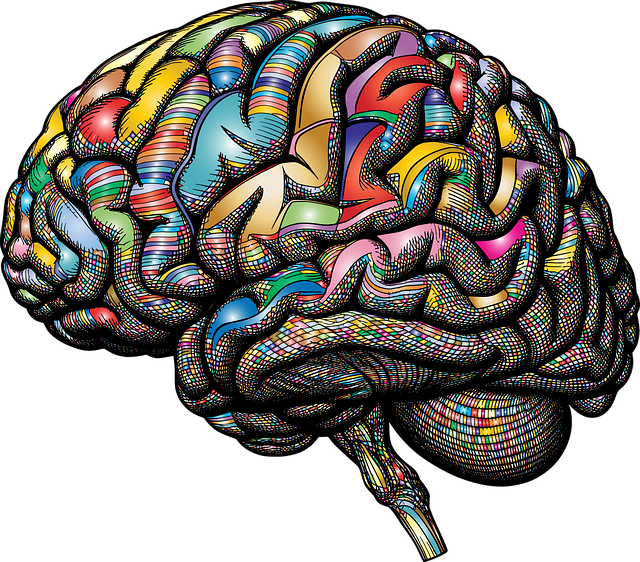Greenwood Village Exposure and Response Prevention Therapy (ERPT) is an innovative, culturally sensitive approach to treating anxiety disorders. By combining exposure therapy with mindfulness meditation, ERPT empowers individuals to confront fears in a safe environment, fostering inner strength and emotional regulation. Cultural sensitivity is vital for effective mental healthcare, addressing unique patient beliefs, values, and communication styles. Greenwood Village's tailored risk management and cultural competency training ensure better patient engagement, improved coping skills, and positive therapeutic outcomes while respecting diverse identities. This evolving practice aims to enhance mental wellness coaching for a diverse clientele by acknowledging social and cultural factors influencing mental health.
“Cultural sensitivity is a cornerstone in delivering effective mental healthcare, ensuring equitable treatment for all. This article explores this vital aspect within the context of Greenwood Village’s unique Exposure and Response Prevention Therapy (ERP) approach. We delve into identifying cultural barriers and present practical strategies for therapists to foster culturally responsive practices.
Through case studies, we showcase successful implementations of these techniques, highlighting how ERP can be tailored to diverse patient backgrounds, ultimately enhancing therapeutic outcomes.”
- Understanding Cultural Sensitivity in Mental Healthcare
- The Greenwood Village Exposure and Response Prevention Therapy Approach
- Identifying Cultural Barriers to Effective Treatment
- Strategies for Culturally Responsive Practice
- Case Studies: Successful Implementation of Cultural Sensitivity in Therapy
Understanding Cultural Sensitivity in Mental Healthcare

Cultural sensitivity in mental healthcare is a critical aspect that ensures every patient receives care tailored to their unique background and experiences. It involves understanding and appreciating diverse cultural beliefs, values, and practices, which can significantly influence an individual’s approach to seeking help for their mental health. Mental healthcare providers must be adept at navigating these complexities to offer effective treatment.
In the context of Greenwood Village Exposure and Response Prevention Therapy (ERPT), a culturally sensitive approach is essential. ERPT, a form of cognitive behavior therapy, involves exposing patients to distressing situations in a safe environment to help them manage anxiety and phobias. By incorporating compassion cultivation practices and mindfulness meditation techniques, healthcare providers can foster an environment that respects individual cultural identities. This approach not only enhances patient engagement but also promotes healing by addressing the root causes of mental health issues within a patient’s cultural framework, ensuring better outcomes without exacerbating existing challenges or triggering unresolvable conflicts.
The Greenwood Village Exposure and Response Prevention Therapy Approach

The Greenwood Village Exposure and Response Prevention (ERP) Therapy Approach is a highly effective treatment methodology within the realm of mental healthcare, particularly tailored for addressing anxiety disorders. This innovative therapy focuses on empowering individuals to confront their fears in a structured and supportive environment, fostering inner strength development. By gradually exposing patients to anxious triggers, therapists enable them to manage their responses, ultimately reducing the impact of these stressors on their daily lives.
The ERP approach incorporates various strategies, including mindfulness meditation techniques, to help clients gain control over their emotional reactions. Through this process, individuals not only learn to regulate their moods but also develop valuable coping mechanisms that enhance their overall well-being. By combining exposure therapy with response prevention, Greenwood Village offers a comprehensive solution for those seeking effective mood management and personal growth.
Identifying Cultural Barriers to Effective Treatment

In mental healthcare, understanding cultural sensitivity is paramount to providing effective treatment. Greenwood Village Exposure and Response Prevention Therapy (ERPT), for instance, must navigate diverse patient backgrounds, each with unique beliefs, values, and communication styles. Cultural barriers can significantly impact a patient’s willingness to engage in therapy, their interpretation of symptoms, and the effectiveness of coping skills taught. For example, patients from different ethnic or cultural groups might have distinct concepts of mental health and illness, which could lead to resistance or miscommunication during therapy sessions.
Integrating cultural sensitivity into ERPT involves learning about various cultural practices, beliefs, and challenges specific to each patient’s background. This includes recognizing how cultural factors influence coping mechanisms and problem-solving strategies. By doing so, healthcare providers can tailor their approach to foster better engagement, improve self-esteem, and facilitate the development of effective coping skills. Preventing burnout among caregivers is also enhanced when they are attuned to these cultural nuances, ensuring a more inclusive and successful therapeutic journey for all participants.
Strategies for Culturally Responsive Practice

In the realm of mental healthcare, culturally sensitive practices are essential to ensuring effective treatment and emotional well-being promotion techniques for diverse patient populations. One notable strategy is adopting exposure and response prevention therapy (ERP), as seen in Greenwood Village’s approach, which has proven successful across various cultural contexts. By incorporating ERP, therapists can help individuals confront and manage anxiety or distress related to specific cultural triggers or memories.
Additionally, mental health professionals should engage in continuous risk management planning tailored to the unique needs of each patient. This involves a deep understanding of cultural nuances, historical traumas, and community-specific challenges. Moreover, developing mental wellness coaching programs that are culturally responsive can empower individuals to navigate their emotional journeys while respecting their cultural identities. Such initiatives contribute to a holistic approach in mental healthcare, fostering positive outcomes and strengthening the bond between therapists and diverse clientele.
Case Studies: Successful Implementation of Cultural Sensitivity in Therapy

In recent years, there has been a growing recognition of the importance of cultural sensitivity in mental healthcare practice. Case studies highlight successful implementations where therapists have tailored their approach to meet the unique needs of diverse clientele. For instance, the Greenwood Village Exposure and Response Prevention (ERP) Therapy program stands out for its comprehensive integration of cultural competency. Through structured training on emotional intelligence and awareness of unconscious biases, healthcare providers are equipped to create safe spaces for clients from various backgrounds.
This shift towards culturally sensitive practices is not merely a trend but a necessary evolution in mental wellness coaching programs. Healthcare provider cultural competency training plays a pivotal role by fostering empathy and understanding among practitioners. By recognizing the impact of social and cultural factors on mental health, therapists can offer more effective interventions, leading to improved outcomes for all individuals seeking support.
Incorporating cultural sensitivity into mental healthcare practice, such as the Greenwood Village Exposure and Response Prevention Therapy approach, is essential for delivering effective treatment. By understanding cultural nuances, identifying barriers, and employing strategies for culturally responsive care, therapists can create a safe and inclusive environment for diverse clientele. The case studies presented illustrate successful implementations that showcase the positive impact of sensitivity on therapy outcomes. Recognizing and respecting cultural differences are not just ethical considerations; they are key to revolutionizing mental healthcare to better serve all individuals.













